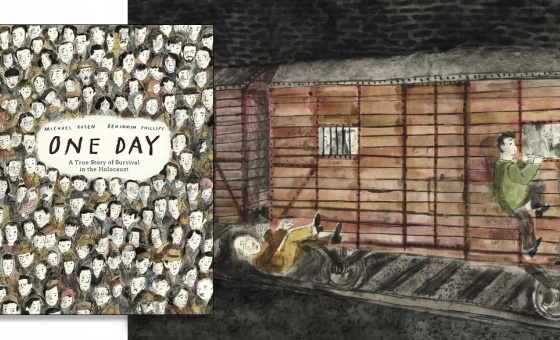This is the last article you can read this month
You can read more article this month
You can read more articles this month
Sorry your limit is up for this month
Reset on:
Please help support the Morning Star by subscribing here
THE Good Food Guide has its roots in a unique account of the 1926 General Strike. Although edited by a prominent journalist, A Worker’s History of the Great Strike wasn’t a top-down record of events as seen from the centre but was based on direct reports from activists nationwide.
As explained in the introduction, “In effect the writing of this book is a first essay in a form of co-operative inquiry which we believe will be to the greatest benefit of the workers if it can be extended.”
Many years later that book’s editor, Raymond Postgate, used the same proto-wiki style of knowledge pooling to create The Good Food Guide. In between and either side of those two achievements, he spent time as a political prisoner, was a founding member of the Communist Party of Great Britain, got sued by Babycham, and became one of the most lauded writers of British crime fiction — based on just one novel.
Born in 1896, Raymond was the son of a leading academic who was both well-to-do and politically Conservative. That man was to suffer several disappointments in the choices made by his children. By the time Raymond arrived at Oxford University he was a convinced socialist and pacifist, having witnessed the murderous violence with which the state suppressed the 1911 transport strike in Liverpool, where the family was then living. Reading books by left-wing economist GDH Cole confirmed his views.
Refusing to fight in the first world war, he spent time both on the run and in prison. It was through campaigning for Raymond’s release that his sister Margaret met GDH Cole; they married in 1918. The same year, in fact, that Raymond married Daisy, daughter of the London socialist George Lansbury who was later one of the Poplar Rebels and even became leader of the Labour Party briefly in the 1930s. Professor Postgate disinherited his wayward son and daughter, and banned Raymond from ever again setting foot in the family home.
Post-war, Raymond earned his living a journalist, initially on Communist Party titles. He soon split from the party — though never from Marxism — and worked on various socialist and co-op papers, mostly edited by his father-in-law. He also wrote well-received works of political biography and polemic.
Like many who’d been pacifists in the first war, Postgate changed his views when it came to the war against fascism and he was an early volunteer for the Home Guard. He was editor of the influential left-wing weekly Tribune for a while, until sacked by Aneurin Bevan following an explosive clash of personalities. He took wartime work as a civil servant.
Sometime in the 1940s, appalled by the “sodden, sour, slimy, sloppy, stale or saccharined” grub routinely served in British restaurants he joked about forming a Society for the Prevention of Cruelty to Food. Postgate was always uncompromising in his belief that working people were entitled to the best that life could offer, not rancid scraps from the rich man’s table: not only decent housing, education and healthcare, but also decent food and drink.
He formed the Good Food Club in 1950, and the Guide, which went on to be famous throughout the world and widely imitated, was first published the following year. It covered every type of eatery, from pubs and seaside chippies to expensive West End toff-traps and everything in between. Crucially, its volunteer inspectors were anonymous, and dined as ordinary customers, unknown to the management. Tip-offs from members of the public about places worth inspecting were invited.
The project’s aims were “to raise the standard of cooking in Britain” and “to do ourselves all a bit of good by making our holidays, travels and evenings-out in due course more enjoyable.” Establishments known to operate a colour bar were banned from the Guide, and today the book’s publishers claim to take a similar line with “any restaurant that is shown to neglect the welfare and mental health of its staff.”
Postgate’s sister and her husband, the Coles, wrote a lot of detective fiction together from the 1920s to the 1940s. But it’s Raymond Postgate’s Verdict of Twelve (1940) which excited the connoisseurs, then and now, being seen as a landmark work of the late golden age of crime writing. (He wrote two other crime books, but they didn’t make much impact.) It’s usually described as a psychological novel, which arguably misses its origin in Postgate’s understanding of dialectical materialism. The book’s epigraph is from Marx: “It is not the consciousness of men that determines their existence, but on the contrary their social existence determines their consciousness.”
Verdict’s admirers included Raymond Chandler, and Britain’s most significant critic of crime fiction, Julian Symons — who also wrote an account of the General Strike, though his was from an essentially Trotskyist stance.
One of the last, and oddest, little adventures of Postgate’s life came in 1965 when he was sued by the makers of Babycham, after he’d written an article pointing out that the West Country’s second most famous drink was actually pear perry, even if it was served like champagne. The company said he was accusing them of trying to pass off Babycham as real cham; they lost the case.
Raymond Postgate died on March 29 1971; his wife Daisy outlived him by a few weeks. And if the name Postgate seems familiar to you, but you’re not sure where from, you’re perhaps thinking of their son John, the prominent microbiologist. Or possibly of their other son, Oliver, who created The Clangers.
You can sign up for Mat Coward’s Rebel Britannia Substack at www.rebelbrit.substack.com for more strange strikes, peculiar protests, bizarre boycotts, unusual uprisings and different demos.









